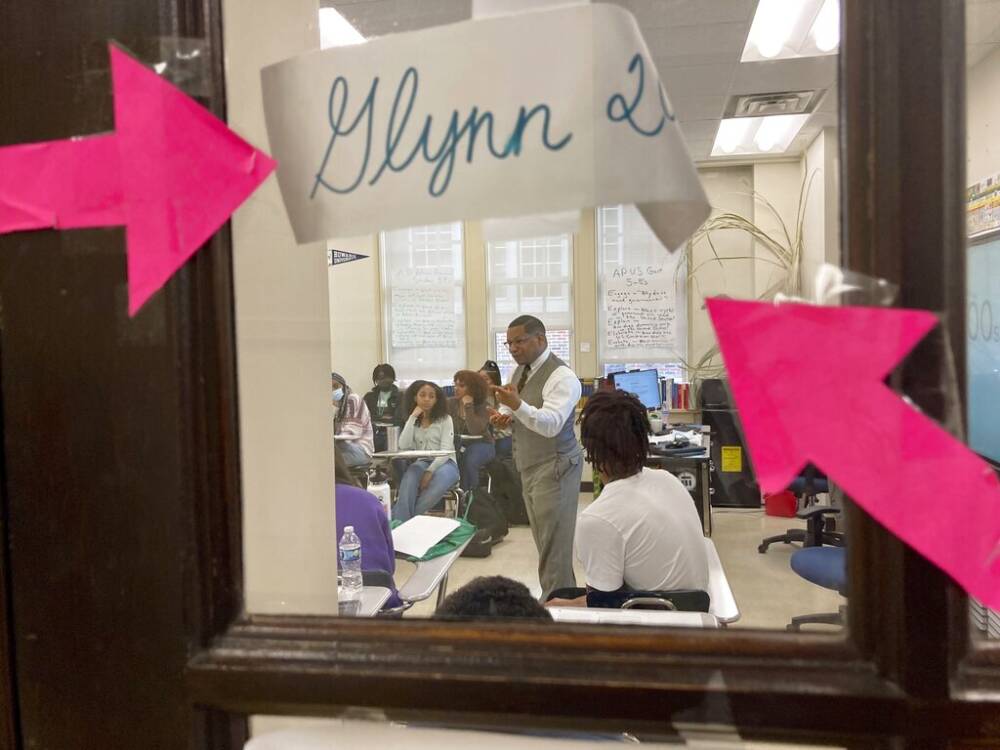Advertisement
Commentary
Black history is American history

Across the country, conservative groups have orchestrated a concerted effort to prevent the teaching of African American studies centered on the history of race in America. While Florida has been the most prominent face of opposition, similar efforts are underway throughout the country, including in New England. Unless we are vigilant, the false ideology that race does not play a prominent role in American history risks taking hold in our own backyard.
The current anti-Blackness movement began with an executive order promulgated by President Donald Trump in 2020, which purported to ban federal agencies and contractors from promoting "divisive concepts" — a broad term designed to encompass race relations, the role that race has played in American legal and government systems, and the implications of racism today. Although the executive order was partially prohibited by a federal court and later revoked by President Joe Biden, the "divisive concepts" mantle has now been picked up at the state and local levels.
For example, in 2022, the College Board piloted a new Advanced Placement (A.P.) African American studies course centered on the lived experience of Black people. Florida Gov. Ron DeSantis immediately condemned it, using “divisive concepts” rhetoric. The College Board ultimately revised the curriculum, rendering previously mandatory lessons on topics such as the Black Lives Matter movement, mass incarceration and contemporary experiences of African Americans, into optional research topics.
We are not immune: Similar efforts to curtail the teachings of the African American experience are also occurring in New England. In 2021, for example, when numerous states passed laws to ban race-related topics in schools, New Hampshire was among the first to enact such legislation. The “Right to Freedom from Discrimination in Public Workplaces and Education" law incorporates the “divisive concepts” strategy, using ambiguous language — for example, banning teaching about the concept of racial superiority — that would prohibit teaching students that slavery was premised on the notion of white supremacy.
The law is intentionally vague and designed to have a broad and sweeping chilling effect, mandating discipline of teachers engaged in prohibited teaching, up to, and including, revocation of professional licensure. While prohibiting lessons on one race being superior to another generally sounds positive, the “divisive concepts” ban utilizes vague language to impose severe penalties on teachers leading them to err on the side of caution to not teach anything race-related for fear of running afoul. This punishing scheme effectively prohibits lessons — and dialogue — surrounding historical and existing racial disparities in education, employment, health care and housing stemming from prejudicial policies and segregationist laws.
Similar efforts are also underway in Massachusetts. Recently, residents of Mansfield, a town south of Boston, introduced a law using ambiguous language to limit K-12 teachers’ lessons on “divisive concepts” with penalties up to and including termination. Legal counsel for the town prevented passing the ordinance by challenging its legality. The legal opinion stated the ordinance would be a violation of the teacher’s collective bargaining agreement as consequences would be imposed without teachers’ negotiating.
Although the efforts in Mansfield were ultimately thwarted, Mansfield is not an isolated incident. A group of Newton residents recently tried — unsuccessfully — to create an "advisory panel" that would have sweeping powers over the elected school committee, which many saw as a veiled attempt to roll back the district's commitments to teaching diversity and inclusion. According to UCLA School of Law’s Critical Race Theory “Forward Tracking” Project, all six New England states — have introduced laws at the local or state level to prevent race-related lessons.
When dealing with racism, silence is acquiescence.
Residents who do not want to bury history, as the “divisive concepts” proponents would like, must speak out forcefully against bills, ordinances, articles, resolutions and laws at the state and local level that attempt to limit lessons on African American history and the ongoing effects of racism. Vigilance is necessary to prevent New England from falling in line with efforts that promote discrimination and exclusion. Local communities must pay attention to these, and future, proposed laws to ensure that this harmful trend does not continue.
States and cities that pass such bans open themselves up to legal liability as well. The language used by these laws is vague — intentionally so, in order to chill teachers from even treading close to what they fear might be prohibited topics. But this type of vague prohibition violates numerous laws, including the U.S. Constitution's due process clause, which requires that laws be written clearly enough to place people on notice of the exact prohibited conduct.
When dealing with racism, silence is acquiescence. Those of us who believe that the only way to combat racism is to confront it head-on must not allow concerted efforts to continue without vocal opposition. The myth that racist laws and ideology only exist below the Mason-Dixon line is a denial of its systemic nature that impacts laws and institutions in the Northeast as well. Blocking lessons on the history of race relations is the latest attempt to shift the focus away from the role racism has played in history and its effects today.
African American history is American history and should not be banned by orchestrated, prejudicial efforts. If we are ever to overcome racism, it’s critical that we teach our children about its past and ongoing impact on systems so that they can become forward-thinking leaders of the future.
The three authors work at Lawyers for Civil Rights. Tasheena Davis is a litigation fellow and responsible for tracking anti-DEI efforts across Massachusetts. Sophia Hall is the deputy litigation director. Oren Sellstrom is the litigation director.
Follow Cognoscenti on Facebook.